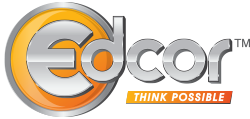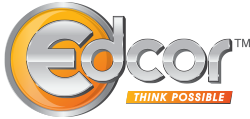Let’s begin this discussion around upskilling in Healthcare with Nurses – the very backbone of the industry. Healthcare organizations with a higher percentage of nurses with BSN or higher degrees have lower mortality rates and better patient outcomes. The testimony to this fact is provided through a study by Linda Aiken from Penn Nursing, which directly correlates higher nursing education to low mortality rates and superior patient outcomes.
The Institute of Medicine in its historic 2010 report on The Future of Nursing: Leading Change, Advancing Health showed that nurses need higher education to meet the changing healthcare needs of patients. This was followed by the proposal to increase the proportion of nurses with a BSN degree to 80% by 2020. However, the findings from the 2020 National Nursing Workforce Survey indicate that only 65.2% of Registered Nurses surveyed had baccalaureate degrees. The survey also indicated that a BSN degree was the most common nursing education (41.8%) that nurses went for. The studies clearly show gaps in higher education in the nursing population of the country.
The U.S. has 4.4 million Registered Nurses and it’s clear that a significant population requires upskilling. Like me, if you are wondering about the barriers to nursing education, the data from the American Association of Colleges of Nursing may hold some answers. The data shows that around 70% of nursing students enrolled in an MSN program have a federal student debt averaging $47,321. The average student loan burden on nursing students graduating with a BSN is around $23,711 and for a DNP it is a whopping $184, 787 – making financial barriers a discerning factor in nursing education.
Employer-funded education benefits like Tuition Assistance, Student Loan Repayment Assistance, and Scholarships can significantly bring these numbers down for Nurses. This is basically why most Healthcare organizations have one or more of these education benefits available for their workforce.
Growing Demand for Healthcare Professionals:
The data from the U.S Bureau of Labor Statistics projects that Healthcare will be the fastest growing industry (13% over the period from 2021 – 2031) leading to the creation of close to 2 million jobs over the next decade. Moreover, the data highlights the nursing shortage – the nation would need 203,000 new registered nurses every year through 2026 to fill the gap created by a retiring population. The gaps however are in many realms including doctors, clinicians, pharmacists, lower-wage healthcare workers, medical assistants, home health aides, etc.
Upskilling for Healthcare Professionals:
In the ever-evolving landscape of healthcare, upskilling is crucial for healthcare professionals. It helps them adapt to new technologies, best practices, and changing patient needs. Upskilling not only improves patient outcomes but also increases job satisfaction and enhances career prospects. Education benefits, as part of enhanced benefits for healthcare professionals, contribute to reducing attrition and maintaining a skilled workforce.
To this end, Edcor has introduced its Critical Pathway programs which focus on Healthcare professionals at large and Nurse education in particular. The Nursing education pathways range from diploma and Licensed Practical Nurse (LPN) degrees to a Doctor of Nursing Practice (DNP). Each level equips nurses with different skills, allowing them to take on diverse roles within the healthcare system. In addition, the Allied Healthcare programs help upskill and reskill recruits and Healthcare professionals for their future roles.
The Edcor School Network has a portfolio of schools that are specialized in program offerings for the healthcare industry. Some of these schools are even open to having healthcare clients as clinical sites for their nursing students and thereby assist in building a recruitment pipeline.
Edcor’s Specialization in Healthcare Education Benefits:
Edcor, with over 42 years of experience and 40% of clients from healthcare services, hospitals, and the pharmaceutical space, specializes in designing customized education benefits programs. Popular benefits for the healthcare sector include Tuition Assistance, Scholarships, Student Loan Assistance, and Academic Advising. These benefits not only upskill the workforce but also contribute to talent retention and internal leadership development.
As the healthcare industry continues to evolve, investing in the education and professional development of nurses and other healthcare professionals is not just beneficial; it’s imperative for delivering high-quality patient care and improving overall healthcare outcomes. Edcor not only works with healthcare employers to design customized education benefits programs that align with their business goals and employee needs but also acts as a counsel and trusted advisor to help them overcome challenges.
So if you are looking for a trusted HR partner for your Healthcare business, look no further.
Reach out to us now at solutions@edcor.519demo.com.

Edcor is a woman-owned business and is the benchmark in education benefits administration. For 40+ years, our customized service and solutions have allowed Fortune 500 Clients to use education benefits programs for employee recruiting, retention, and development. Please feel free to reach out to us!
Spardha Khera, Edcor



